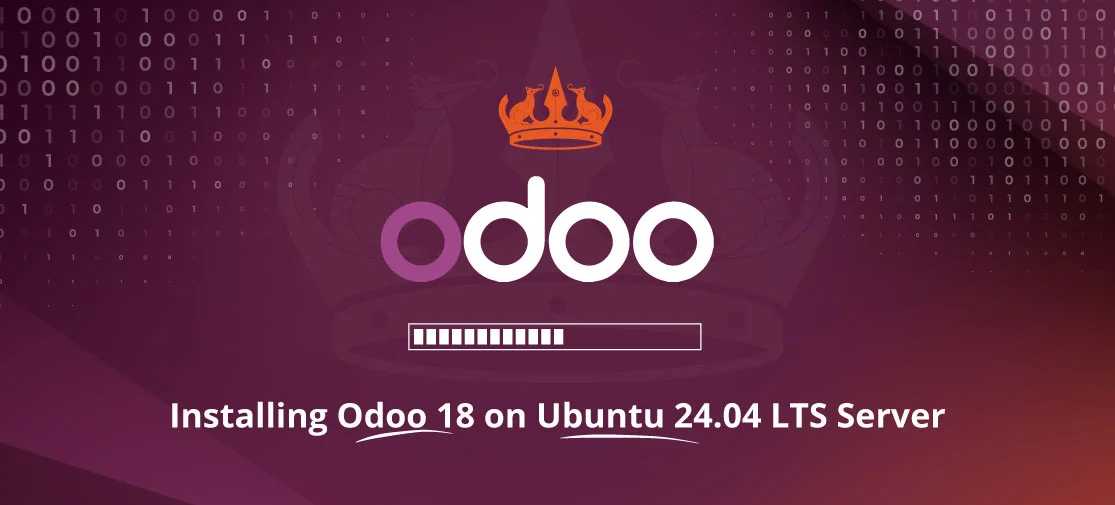Introduction
Open source software is all the rage today and for good reason. They offer users the flexibility and customization options that proprietary software often lacks, all at no cost. One such exciting open-source platform that has captured businesses' attention worldwide is Odoo. In this blog post, we will provide an easy, step-by-step guide on how you can install Odoo 18 on your Ubuntu 24.04 LTS server.
Are you ready to transform your business operations with Odoo? Let's get started!
Step-by-step Guide:
Step 1: Update Your System
First things first, ensure your system is up to date. Open the terminal and type the following commands:
sudo apt update
sudo apt upgradeStep 2: Install Python Dependencies
Odoo depends on Python packages. It's essential to install these before proceeding. You can do this by entering the following into your terminal:
sudo apt install python3-dev python3-pip python3-venv python3-wheel build-essential -yStep 3: Create a System User
For the sake of security, it's preferable to run Odoo under a separate user. To make a new system user and group for Odoo, execute:
sudo adduser --system --home=/opt/odoo --group odooStep 4: Install PostgreSQL Database Server
Odoo uses a PostgreSQL database for its operations. To install PostgreSQL, input the following command:
sudo apt install postgresql -yNext, create a PostgreSQL user with the same name as your system user:
sudo su - postgres -c "createuser -s odoo"Step 5: Download & Install Odoo
Now it's time to get Odoo. Switch to Odoo user and download the source code from the Odoo GitHub repository.
sudo su - odoo -s /bin/bash
wget https://github.com/odoo/odoo/archive/18.0.tar.gzUnpack the downloaded file and move it to the Odoo directory.
tar xvf 18.0.tar.gz
mv odoo-18.0/* ./Step 6: Install Required Python Packages
To install the Python packages required by Odoo, you can use pip3:
pip3 install -r requirements.txtStep 7: Configure Odoo
Configuration can seem complex, but it's all about setting your preferences. Use the nano editor to open a new Odoo configuration file:
nano ~/odoo.confThen you can fill it out as shown here, with your own preferences:
[options]
; This is the password that allows database operations:
admin_passwd = admin
db_host = False
db_port = False
db_user = odoo
db_password = False
addons_path = /opt/odoo/addons
logfile = /var/log/odoo/odoo.logStep 8: Start Your Odoo Server
Once all is set and done, you can start your Odoo server by running:
./odoo-bin -c ~/odoo.confAnd voila, you have successfully installed Odoo 18 on your Ubuntu 24.04 LTS server!
Conclusion
Installing Odoo 18 on Ubuntu 24.04 LTS Server can seem like a challenge, but it doesn't have to be. With this step-by-step guide, you can navigate the process smoothly and start leveraging Odoo's powerful features for your business.
Is there a topic you'd like us to cover next? Drop your suggestions in the comments section below.
Feeling stuck? Our expert technical support is just a call away. Reach out today and let us take care of your IT needs.
Want to harness the power of Odoo for your business but not sure where to start? Contact our expert team for a FREE consultation today!




